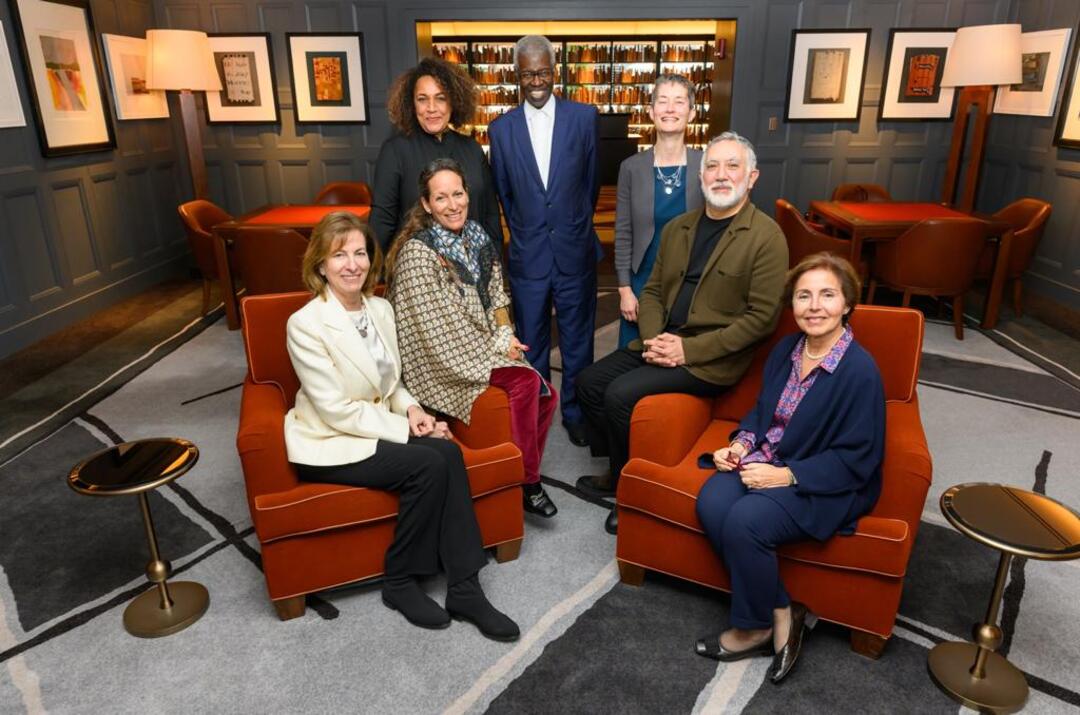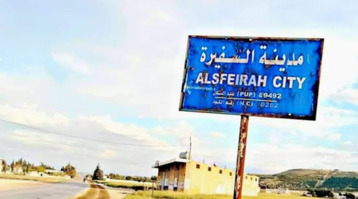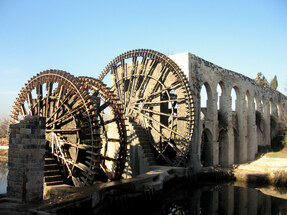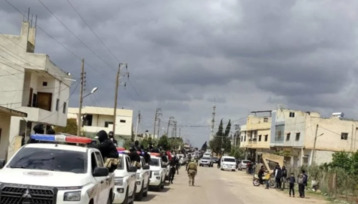-
Steering Committee for 2025 Award Project Submission for 16th Cycle Begins

Geneva, Switzerland, October 2023 – The Aga Khan Award for Architecture has announced the members of its Steering Committee for the 2023-2025 cycle.
The Steering Committee governs the Award and is chaired by His Highness the Aga Khan.
Newly appointed members of the Steering Committee are:
Meisa Batayneh, Principal Architect, Founder, maisam architects and engineers, Amman, Jordan.
Souleymane Bachir Diagne, Professor in the departments of French and Philosophy, Columbia University, New York, USA
Lesley Lokko, Founder & Director, African Futures Institute, Accra, Ghana
Gülru Necipoğlu, Director and Professor, Aga Khan Program for Islamic Architecture, Harvard University, Cambridge, USA
Hashim Sarkis, Dean, School of Architecture and Planning, Massachusetts Institute of Technology, Cambridge, USA
Sarah M. Whiting, Dean, Graduate School of Design, Harvard University, Cambridge, USA
Farrokh Derakhshani is the Director of the Award. For more information about the Steering Committee, including biographies, please see the 2025 Steering Committee https://the.akdn/architecture
A new committee is constituted each cycle to establish the eligibility criteria for project submissions, provide thematic direction in response to emerging priorities and issues, and to develop plans for the future of the Award. One of its most important tasks is to select an independent Master Jury which, in turn, selects award recipients from projects nominated.
“The Award has been most effective when at the forefront of identifying key issues facing the built environment and selecting relevant projects to address these concerns,” said Princess Zahra Aga Khan, at the Steering Committee’s inaugural meeting. “The challenges of climate change and environmental degradation are today intertwined with geo-political shifts, migration, natural disasters, and rapid urbanisation. I would therefore urge members of the Steering Committee to emphasise in this cycle, infrastructure, climate change as well as the important role of civil society actors in shaping how we live, work and play.”
Established in 1977, the Aga Khan Award for Architecture is given every three years to projects that set new standards of excellence in architecture, planning practices, historic preservation and landscape architecture. The Award seeks projects that represent the broadest possible range of architectural interventions, with attention given to building schemes that use local resources and appropriate technology in innovative ways, and those that are likely to inspire similar efforts elsewhere. Projects can be anywhere in the world but must successfully address the needs and aspirations of societies in which Muslims have a significant presence.
The Aga Khan Award for Architecture has completed 15 cycles of activity since 1977 and has documented over 9,000 building projects throughout the world. It has a prize fund of US$ 1,000,000. Winners who shared this prize during the last cycle in 2022, included: Urban River Spaces and Community Spaces in Rohingya Refugee Response (Bangladesh); Banyuwangi International Airport (Indonesia); Argo Contemporary Art Museum (Iran); the renovation of Niemeyer Guest house (Lebanon); and Kamanar Secondary School (Senegal).
The rigor of its nomination and selection process has made it, in the eyes of architects, experts and observers alike, one of the world’s most important architectural prizes.
The announcement of the Steering Committee coincides with that of the identification of projects for the 16th Award Cycle. Farrokh Derakhshani noted that, to be eligible for consideration in the 2025 Award cycle, projects must be completed between 1 January 2018 and 31 December 2023 and should have been in use for at least one full year.
Further details of the project submission process can be found here.
All types of building projects that affect today’s environment may be submitted. These include architectural projects ranging from modest, small-scale buildings to sizable complexes, from single homes, bus stops and rural school buildings to skyscrapers, infrastructure and transportation undertakings, housing initiatives, educational and health campuses, new towns, urban conservation projects and the re-use of brown field sites. All forms of planning practice in urban as well as rural contexts are encouraged. Large projects and long-term initiatives that are not yet fully completed – such as master plans, area preservation projects, and community upgrading schemes, among others – are eligible so long as a tangible portion of the project has been completed in a manner that demonstrates its long-term potential success and viability.
For the sixteenth cycle (2023-2025), the Award particularly encourages the submission of projects that address climate change, intervene in rural landscapes, urban peripheries and those that deal with public space at all scales.
Architecture that reflects the pluralism that has characterised Muslim societies and communities around the world is encouraged. There are no fixed criteria for the type, nature, location, or cost of projects to be considered, although eligible projects must be designed for or used by Muslims, in part or in whole, wherever they are located.
To ensure the continuing impartiality of the Award procedures, projects affiliated with, or commissioned by His Highness the Aga Khan or the agencies of the Aga Khan Development Network cannot be considered, including those undertaken by current members of the Award Steering Committee and Master Jury, or by the Boards or staff of the Aga Khan Trust for Culture and Aga Khan Development Network.
Ceremonies to announce the winning projects and mark the close of each triennial cycle are always held in settings selected for their architectural and cultural importance to the Muslim world. Previous venues for Award ceremonies encompass many of the most illustrious architectural achievements, including Shalimar Gardens in Lahore (1980), Topkapi Palace in Istanbul (1983), the Alhambra in Granada (1998), Emperor Humayun’s Tomb in Delhi (2004), and most recently at the Kazan Kremlin in the Russian Federation (2019) and the Royal Opera House in Muscat (2022).
You May Also Like
Popular Posts
Caricature
BENEFIT AGM approves 10%...
- March 27, 2025
BENEFIT, the Kingdom’s innovator and leading company in Fintech and electronic financial transactions service, held its Annual General Meeting (AGM) at the company’s headquarters in the Seef District.
During the meeting, shareholders approved all items listed on the agenda, including the ratification of the minutes of the previous AGM held on 26 March 2024. The session reviewed and approved the Board’s Annual Report on the company’s activities and financial performance for the fiscal year ended 31 December 2024, and the shareholders expressed their satisfaction with the company’s operational and financial results during the reporting period.
The meeting also reviewed the Independent External Auditor’s Report on the company’s consolidated financial statements for the year ended 31 December 2024. Subsequently, the shareholders approved the audited financial statements for the fiscal year. Based on the Board’s recommendation, the shareholders approved the distribution of a cash dividend equivalent to 10% of the paid-up share capital.
Furthermore, the shareholders endorsed the allocation of a total amount of BD 172,500 as remuneration to the members of the Board for the year ended 31 December 2024, subject to prior clearance by related authorities.
The extension of the current composition of the Board was approved, which includes ten members and one CBB observer, for a further six-month term, expiring in September 2025, pending no objection from the CBB.
The meeting reviewed and approved the Corporate Governance Report for 2024, which affirmed the company’s full compliance with the corporate governance directives issued by the CBB and other applicable regulatory frameworks. The AGM absolved the Board Members of liability for any of their actions during the year ending on 31st December 2024, in accordance with the Commercial Companies Law.
In alignment with regulatory requirements, the session approved the reappointment of Ernst & Young (EY) as the company’s External Auditors for the fiscal year 2025, covering both the parent company and its subsidiaries—Sinnad and Bahrain FinTech Bay. The Board was authorised to determine the external auditors’ professional fees, subject to approval from the CBB, and the meeting concluded with a discussion of any additional issues as per Article (207) of the Commercial Companies Law.
Speaking on the company’s performance, Mr. Mohamed Al Bastaki, Chairman BENEFIT , stated: “In terms of the financial results for 2024, I am pleased to say that the year gone by has also been proved to be a success in delivering tangible results. Growth rate for 2024 was 19 per cent. Revenue for the year was BD 17 M (US$ 45.3 Million) and net profit was 2 Million ($ 5.3 Million).
Mr. Al Bastaki also announced that the Board had formally adopted a new three-year strategic roadmap to commence in 2025. The strategy encompasses a phased international expansion, optimisation of internal operations, enhanced revenue diversification, long-term sustainability initiatives, and the advancement of innovation and digital transformation initiatives across all service lines.
“I extend my sincere appreciation to the CBB for its continued support of BENEFIT and its pivotal role in fostering a stable and progressive regulatory environment for the Kingdom’s banking and financial sector—an environment that has significantly reinforced Bahrain’s standing as a leading financial hub in the region,” said Mr. Al Bastaki. “I would also like to thank our partner banks and valued customers for their trust, and our shareholders for their ongoing encouragement. The achievements of 2024 set a strong precedent, and I am confident they will serve as a foundation for yet another successful and impactful year ahead.”
Chief Executive of BENEFIT; Mr. Abdulwahed AlJanahi commented, “The year 2024 represented another pivotal chapter in BENEFIT ’s evolution. We achieved substantial progress in advancing our digital strategy across multiple sectors, while reinforcing our long-term commitment to the development of Bahrain’s financial services and payments landscape. Throughout the year, we remained firmly aligned with our objective of delivering measurable value to our shareholders, strategic partners, and customers. At the same time, we continued to play an active role in enabling Bahrain’s digital economy by introducing innovative solutions and service enhancements that directly address market needs and future opportunities.”
Mr. AlJanahi affirmed that BENEFIT has successfully developed a robust and well-integrated payment network that connects individuals and businesses across Bahrain, accelerating the adoption of emerging technologies in the banking and financial services sector and reinforcing Bahrain’s position as a growing fintech hub, and added, “Our achievements of the past year reflect a long-term vision to establish a resilient electronic payment infrastructure that supports the Kingdom’s digital economy. Key developments in 2024 included the implementation of central authentication for open banking via BENEFIT Pay”
Mr. AlJanahi concluded by thanking the Board for its strategic direction, the company’s staff for their continued dedication, and the Central Bank of Bahrain, member banks, and shareholders for their valuable partnership and confidence in the company’s long-term vision.
opinion
Report
ads
Newsletter
Subscribe to our mailing list to get the new updates!






















